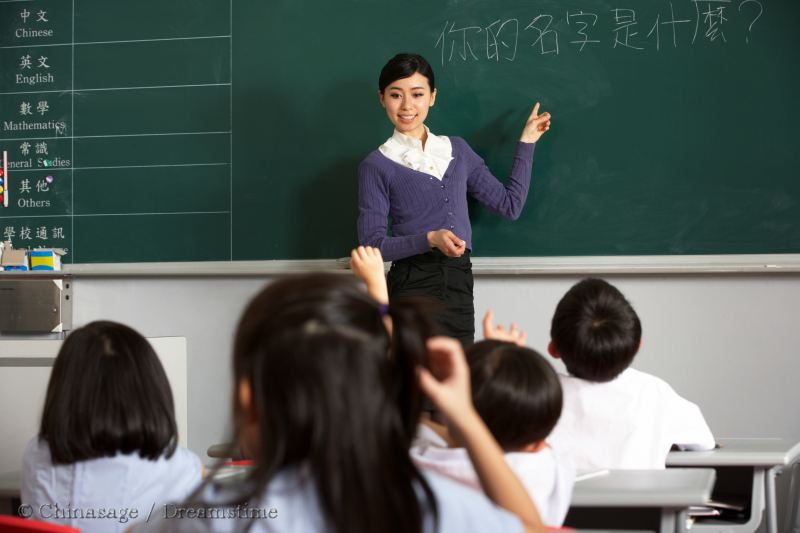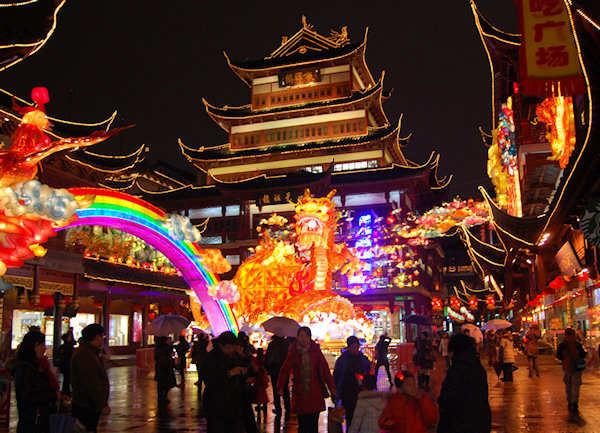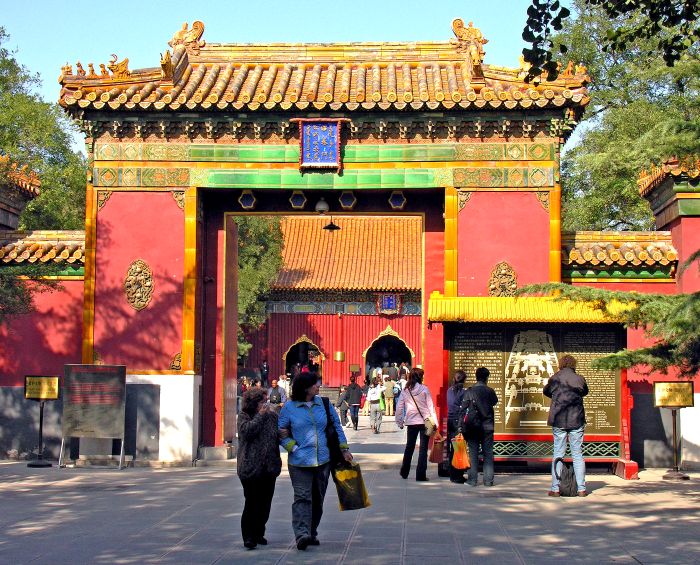Chinese language : Lesson 2
In our introduction to the Chinese language section we explained the use of tones in mandarin and provided the building blocks so that basic sentences could be read and understood. Lesson 2 builds introduces some very commonly used phrases.

All the Chinese words that are mentioned are either introduced in this lesson or elsewhere in the language section.
Pleasantries
The Chinese are a polite people and will thank you if helped in any way. As well as ni hao to say hello you will often hear the word huan ying as welcome; it means hearty greeting. The word Please is not quite as widely used as it is in English and reserved for a relatively large favor. It is usually put first in a sentence and often in conjunction with wen if asking a question.
The easiest and universal way to express gratitude is with thank you xie xie. This is an example where repeating a character softens its meaning making it less formal. If you thank someone or they thank you there is a phrase that is often used as a reply to thank you it is mei guan xi; it can be translated as no problem but more precisely means no consequence. You can also say bu xie which also means no need to thank / you're welcome it does not mean no thanks. When you want to say farewell; say zai jian it literally means see you again. If you are pleased or happy then gao xing is a useful word to include.
Names and Titles
When addressing people there are conventions regarding names and titles that should be followed. The first and most important rule is that the order of names is family name followed by given name rather than the other way around. So Xi Jinping is Mr. Xi with given name Jinping. There are only a few family names in use in China, indeed China is sometimes known as the ‘hundred names’, there are tens of millions of people with the same family name. It is therefore important to use the given name as well as the family name. Only close family members and friends are greeted with just their given name. On meeting someone for the first time, formal titles are used: Mr. xian sheng; Miss xiao jie and Mrs. tai tai.
In conversation it’s usual to acknowledge a person’s relative age, this is done by putting old or young before the name. Xiao is used for young people (under 35) and lao for older people (ten years older than yourself or over 40). These are used after first getting acquainted.
In Mao’s China everyone as known as tong zhi comrade it literally means same purpose. The term has faded from use. You may still hear it as an announcement to a group of people in the plural form: 同志们 tóng zhì mén but it is now also used as a slang term for a homosexual.
It is useful to know the word for friend peng you, a common word for a child is xiao peng you ‘little friend’.
To ask someone their name you can say:
Qǐng
请
wèn
问
nǐ
你
jiào
叫
shén me
什么
What is your name?. In response you say 我叫 wǒ jiào followed by your name.

Mandarin Tones
We have been careful to avoid introducing too many things at once. Although we have used the pinyin tone marks above the vowels we have not formally introduced them (Our language introduction does have a section on the pinyin tones but they are so important that they are listed again here). In Chinese, getting the vowel tones correct, is just as important as getting consonants right, they are a part of the language not an optional extra. The vowel sounds can be any of the these five tones, using the wrong tone gives the wrong meaning. Here are example how one word ‘shi’ can be pronounced in five different ways to men five completely different things:
| 1 | First: (-) level high tone | 失 shī | To lose, to fail, to miss | |
| 2 | Second: (/) rising tone | 时 shí | Time | |
| 3 | Third: (v) falling then rising tone | 始 shǐ | To start, to begin | |
| 4 | Fourth: (\) sharply falling tone | 世 shì | Life, generation, age | |
| Finally a rarer fifth neutral tone where the tone is muted and not stressed. | ||||
With the character yǒu - friend we have a clash with yǒu - have and these two characters share the same third tone so you can only distinguish them by their context. These are examples of homophones, all languages have them, in English write, rite, wright and right are pronounced the same but written differently just like 友 yǒu and 有 yǒu in Chinese.
This and that
We have already mentioned use of 什么 shén me; it is almost impossible to converse without using words like this and that and other indefinite relations.
However zhè can be pronounced as zhèi and nà as nèi just to complicate matters a little.
There is a special usage of 儿 ér to consider in spoken Chinese. On its own it means child usually son but it is also put at the end of a number of words to give it an 'r' ending. This is a feature of the dialect in the Beijing area . To avoid confusion nar is usually used with another character zai which on its own means located; at and together also means where.
The suffix 儿 ér is also used to modify this into here.
As well as asking where; you also need to ask people who they are. Shei can also be pronounced as shuí - it is less formal than shéi.
To complete the set, the usual way to ask when is to say what time? which is:
Time and Date
We have a separate section explaining how to say the date and time using Chinese numbers which are one of the first things to learn in Chinese.
Essential in spoken Chinese are the words for yesterday, tomorrow, next week and so on. Because Chinese does not use verb tenses you need to indicate past; present; future in other ways; the easiest method is to put a ‘time phrase’ at the start of the sentence, the intended tense of the verb that follows will then be understood correctly.

Common words
To make our examples a little more varied here are some more useful Chinese words.
Often heard to add emphasis as in: very good hen hao
The word for weather is made out of the characters for heaven and air.
Deng is a useful word to know when traveling it is often prefixed with please : qing deng
Sentences and phrases
Here are some phrases and sentences using the words introduced in this lesson.
Fú
服
wù
务
yuán
员
Waiter. Asks a waiter to come over to serve you.
Nǐ hǎo
你好
lǎo
老
lín
林
Hello Mr. Lin. Greeting someone old or older than yourself with family name Lin.
Tiān ān mén
天安门
zài nà r
在那儿
Where is Tiananmen Square?. Asking directions to the famous landmark Tiananmen Square in Beijing.
Lái
来
zhōng guó
中国
wǒ
我
hěn
很
gāo xīng
高兴
I am delighted to be in China. Like many sentences there is no need for the English ‘am’, it is inferred from its context.
Tā
他
qù
去
nà r
那儿
le
了
Where has he gone?. The past tense gone is split by the term where, this is an example of a difficult direct transliteration.
Jīn tiān
今天
tiān qì
天气
hǎo
好
The weather is good today. There is no need for a verb in this phrase, ‘is’ is implied.
Shén me
什么
shí hòu
时候
What time is it?. A useful phrase to ask the time.
Zhè
这
shì
是
wǒ de
我的
zhāng
张
piào
票
This is my ticket. Use of this and that is essential for statements and questions.
Shéi
谁
zǒu le
走了
Who has left?. Who is just put in place of a person. The same pattern is used in English.
Míng tiān
明天
jiàn
见
See you tomorrow. We came across jian in the word for goodbye zai jian means literally again see.
Nǐ
你
nà
那
tiān
天
zǒu
走
Which day do you leave?. Using which/that automatically turns the sentence into a question.
Tā mén
他们
míng nián
明年
qù
去
měi guó
美国
They are going to America next year. In Chinese, the time phrase has to be put before the verb, in English it would be put at the end.
Vocabulary
Sound files kindly provided by shtooka.net ➚ under a Creative Commons Attribution Share Alike License